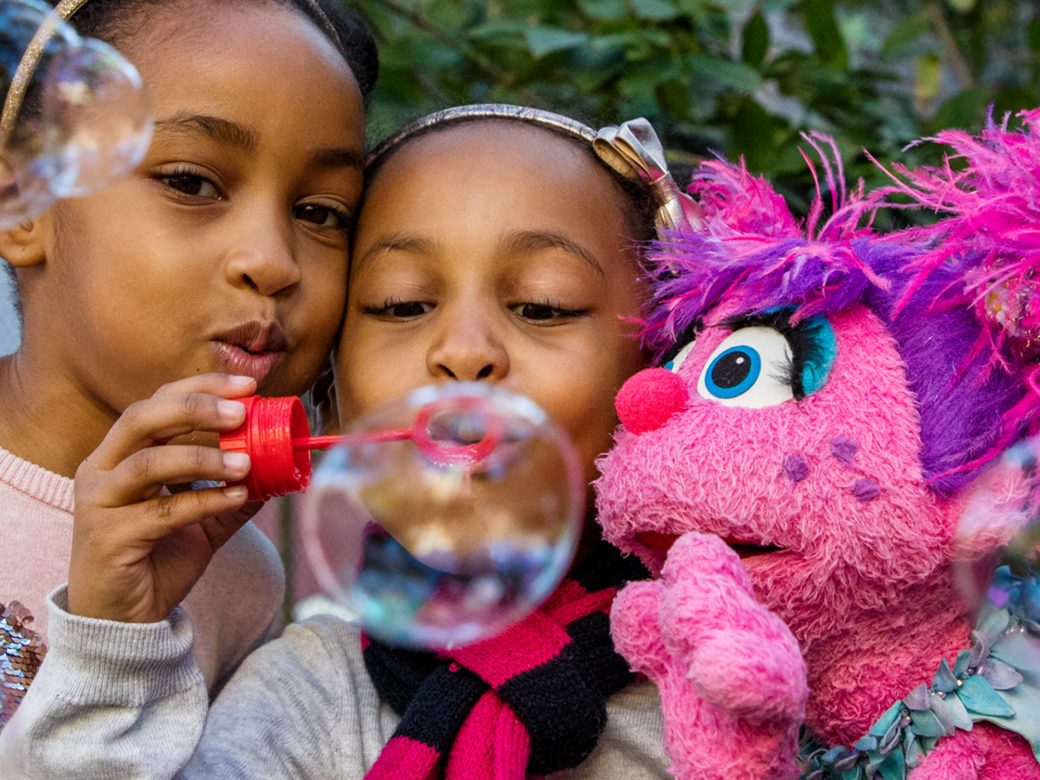
Our Mission and History
Helping children everywhere grow smarter, stronger, and kinder.
Sesame Workshop is a global nonprofit behind Sesame Street and so much more.
For over 50 years, we have worked at the intersection of education, media, and research, creating joyful experiences that enrich minds and expand hearts. With a mission to help children everywhere grow smarter, stronger, and kinder, we reach families in more than 150 countries with playful early learning so we can empower each generation to build a better world.
Our beloved characters, iconic shows, outreach in communities, and more are rooted in deep expertise and designed to meet children’s most pressing needs. From building school readiness to encouraging playful problem-solving, from supporting emotional well-being to promoting positive self-identity, Sesame Workshop is here for children and families — as every caregiver’s valued partner and every child’s trusted friend.
That’s how many parents have deep trust in Sesame Street.
2020-Current
2024: Sesame Street Muppets go to the Olympics
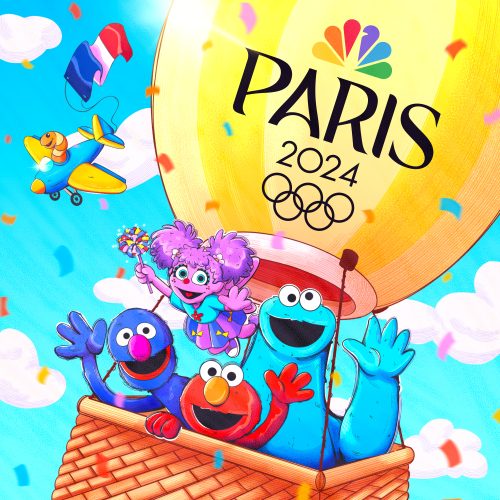
2024: Sesame Street Muppets go to the Olympics
Elmo, Cookie Monster, Abby Cadabby, and Tango went to Paris for the 2024 Summer Olympics. From sightseeing stops at the Louvre and the Eiffel Tower to meeting beloved athletes at the top of their games, the furry friends created memorable media moments and content across Sesame Street’s social media platforms that entertained and engaged fans and families around the world.
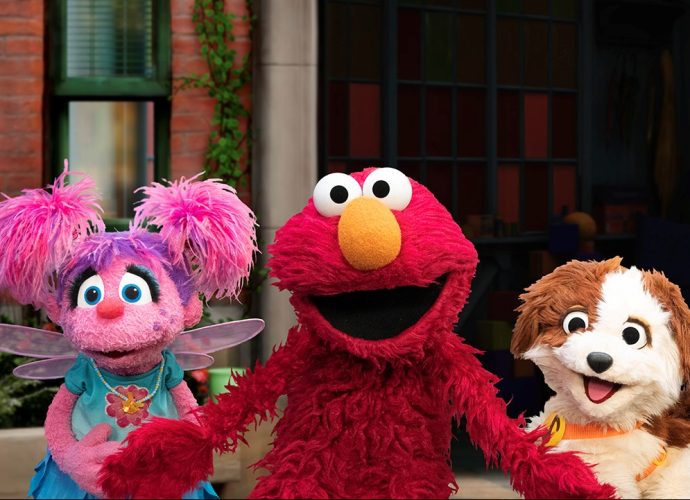
2023: Multi-Year Commitment to Emotional Well-Being Announced
In response to a growing mental health crisis in early childhood, Sesame Workshop launched an organization-wide focus on the emotional well-being of young children and their families. A wide range of activities and content was created to support all families – in joyful everyday moments and at times of distress.
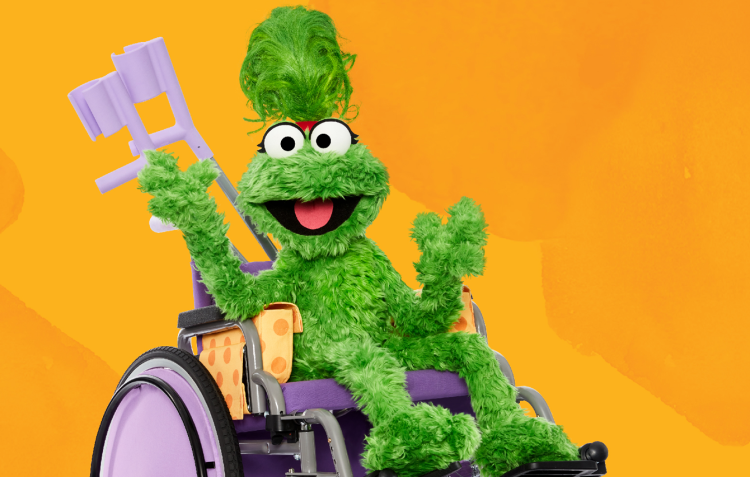
2022: New Sesame Muppet Debuts, as Part of Ahlan Simsim
Ameera — an 8-year-old girl with a passion for science and basketball who uses a bright purple wheelchair due to a spinal cord injury — was unveiled as part of Sesame Workshop’s efforts to support children and families affected by crisis and displacement. Ameera is featured on Ahlan Simsim (“Welcome Sesame” in Arabic), the local version of Sesame Street in the Middle East and North Africa.
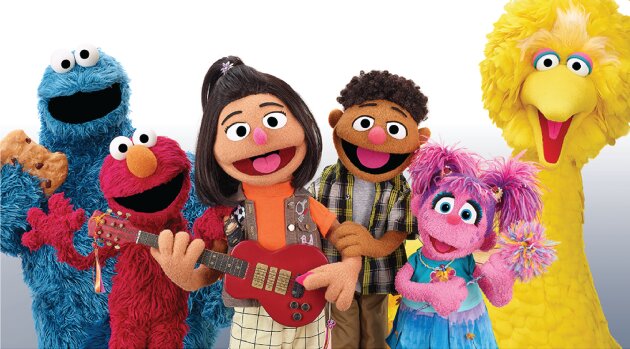
2021: Ji-Young Moves to Sesame Street
See Us Coming Together: A Sesame Street Special” debuted on Thanksgiving Day and introduced the world to Ji-Young, a guitar-playing, skateboarding seven-year-old Korean American character performed by puppeteer Kathleen Kim. The special, celebrating the rich diversity of Asian and Pacific Islander (API) communities, is part of Coming Together, an initiative created to support families of all backgrounds through ongoing conversations about race.
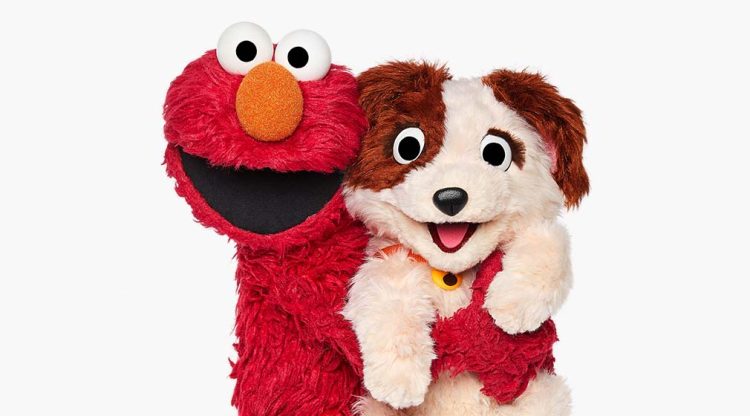
2021: Elmo Adopts a Puppy
When Elmo and Grover encounter a sweet, music-loving stray puppy, they name her Tango and set off to find her “furever home.” Soon, everyone realizes Tango belongs with Elmo at 123 Sesame Street, Tango, who was in development for two years, helps children learn how to meet new animals, gently play with and care for pets, and more. After debuting in an animated special, Tango joined Sesame Street’s 52nd Season as both an animated character and a live-action Sesame Street Muppet.
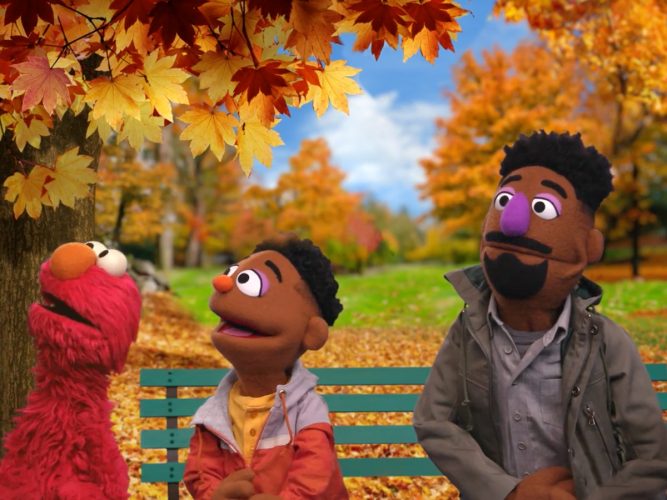
2021: New Neighbors help out with the ABCs of Racial Literacy
Five-year-old Wes and his dad, Elijah, debuted along with the ABCs of Racial Literacy–free, bilingual resources to help families celebrate their identities while giving them tools to have open conversations with children about race and identity, engage allies to become upstanders against racism, and more. In one video, Elijah tells his new friend, Elmo, about melanin–and explains that the color of our skin is an important part of who we are.
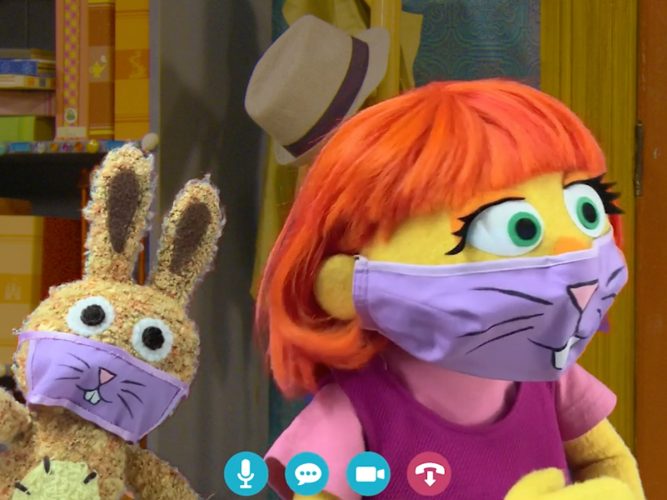
2020: Helping Children and Families Cope and Thrive in a Pandemic
When COVID-19 emerged, families everywhere suddenly faced unprecedented challenges. To help them regain a sense of normalcy, foster playful learning at home, and stay close to friends and family even from afar, Sesame Workshop quickly created Caring for Each Other, a global initiative featuring video playdates, international TV specials, free resources for parents, and kid-friendly Muppet messages reaching families in over 40 languages and more than 100 countries. Caring for Each Other is updated as needs evolve, continuing to offer comfort and support to children and caregivers alike.
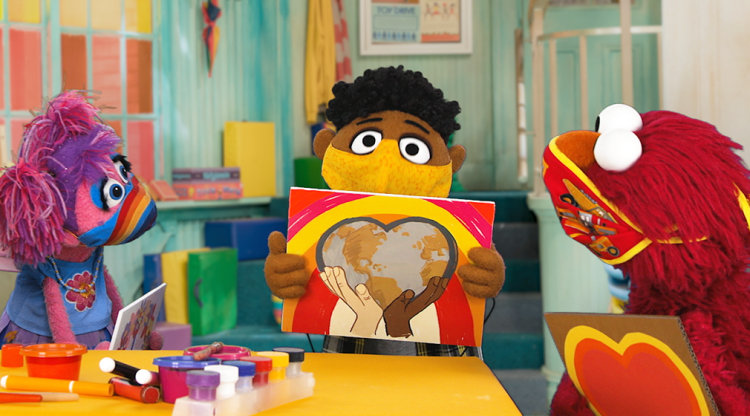
2020: Promoting Racial Justice
In the wake of nationwide protests over police brutality and historic racism, Sesame Workshop built on its long tradition of modeling diversity, equity, and inclusion and began a new focus on anti-racism and racial justice, informed by expert advisories, ongoing research, and the voices of children and caregivers. A CNN Town Hall, “Coming Together: Standing Up to Racism” was followed by a brand-new special, “The Power of We,” modeling ways children can stand up to racism. Rich offerings of short and long form programming, resources across multiple platforms, and Sesame Street in Communities content are planned for 2021, signaling the Workshop’s continuing commitment to tackle racism and its impact on children.
2010-2019
2019: New York City’s Official Sesame Street
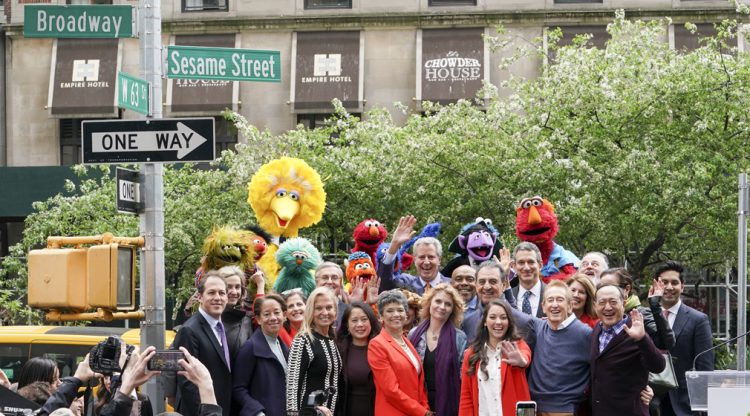
2019: New York City’s Official Sesame Street
New York City Mayor Bill de Blasio declared May 1, 2019 to be “Sesame Street Day” as he unveiled the city’s newest street sign and proclaimed that West 63rd Street between Central Park West and Broadway will now officially be known as Sesame Street. The event featured Sesame Street Muppets Big Bird, Cookie Monster, Elmo, and friends, plus Sesame Street cast members of yesterday and today and Council Member Helen Rosenthal, who sponsored the street naming resolution. Inspiring remarks were delivered by Mayor de Blasio, Sesame Workshop president and CEO Jeff Dunn, and Council Member Rosenthal, with a large crowd of onlookers joining a spirited sing-a-long of the Sesame Street theme song, “Sunny Days.”
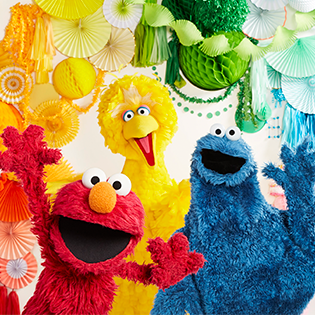
2019: 50 Years of Helping Kids Everywhere Grow Smarter, Stronger, and Kinder
November 10, 2019 marked the 50th Anniversary of Sesame Street. A yearlong celebration honoring the longest-running children’s show in American history included a road trip across the U.S. with free events for families, a landmark Sesame Workshop study on personal identity, and a celebrity-filed primetime special on November 9.
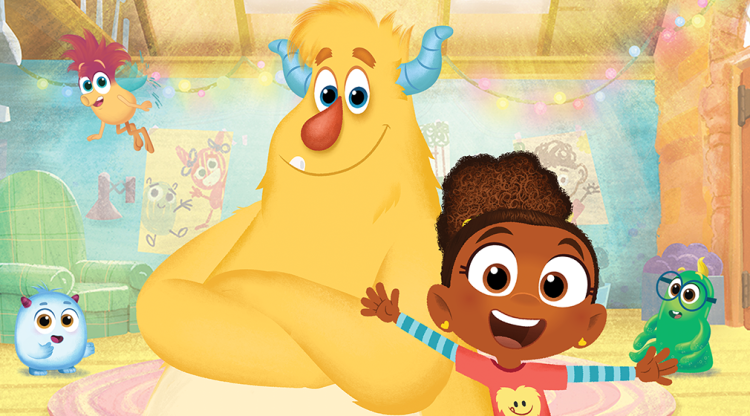
2018: Growing and Innovating
In 2018, we partnered with Nelvana to create Esme & Roy, Sesame Workshop’s first new animated show in over ten years. The program follows a young girl and her best friend on their adventures as the best monster babysitters in Monsterdale. Aimed at children ages four to six, it offers a creative new approach to teaching “learning through play” and mindfulness strategies. Met with an enthusiastic critical response, Esme & Roy was part of a new wave of innovative content. Today, working for new platforms and with new partners, we have more shows in development than ever before.
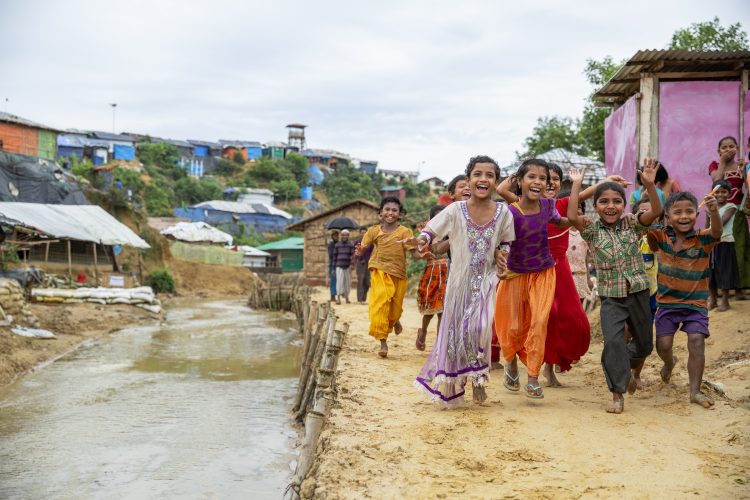
2018: Spreading the Power of Learning Through Play
Less than 3% of global humanitarian aid is dedicated to education, with only a small fraction benefitting young children. The LEGO Foundation, building on the bold philanthropy of the MacArthur foundation, granted Sesame Workshop $100 million to provide children affected by the Rohingya and Syrian crises with the chance to learn through play and develop the skills they need to thrive. Working in partnership with BRAC, the International Rescue Committee, and New York University’s Global TIES for Children, our play-based curriculum will foster engagement between children and their caregivers, nurture developmental needs, and build resilience, helping to set children on a path of healthy development.

2017: Restoring Hope to a Generation
Over 30 million children have been displaced in the global refugee crisis, losing homes and loved ones and enduring the kinds of trauma that puts them at risk for lifelong impairment. Children are remarkably resilient—we know that if we reach them early, we can help change their trajectories. But we also know we can’t do it alone—we need partners who understand the plight of refugees as well as we understand the needs of young children. So, with a historic support from the MacArthur Foundation, we teamed up with the International Rescue Committee to build the largest early childhood intervention in the history of humanitarian response.
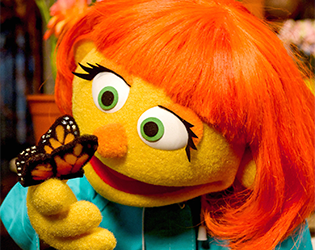
2017: Understanding Autism with Julia
An estimated one in 59 children in the United States is on the autism spectrum. While the diagnosis is common, public understanding of autism is not. Through the See Amazing in All Children initiative, we help support families of autistic children and reduce the isolating misconceptions that still surround autism with the help of Julia, the first Sesame Street Muppet with autism. Julia’s 2017 television debut was greeted with hundreds of media stories and millions of social media impressions, but the biggest marker of our success was the overwhelming response from the autism community and beyond.
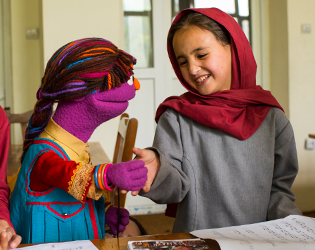
2016: Meet Zari
In Afghanistan, Sesame co-production Baghch-e-Simsim stars our first Afghan Muppet, Zari — an energetic six-year old girl who loves to go to school and play sports. Zari promotes gender equity, serving as a role model for young girls and showing boys that it’s okay for girls to go to school, play cricket, and aspire to a career. Zari’s younger brother, Zeerak, joined the cast the following year. Zeerak looks up to his big sister, promoting the idea that women’s place in society extends beyond the home.
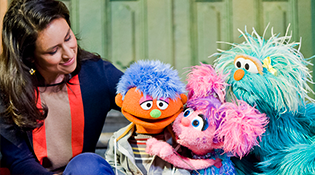
2013: Supporting Children with Incarcerated Parents
2.7 million children in the United States have a parent in state or federal prison, but few resources exist to support young children and families coping with that reality. To help children with an incarcerated parent cope, we launched an initiative to equip adults and children with strategies and resources to help them feel comforted and connected through this difficult time.
2000-2009
2006: Military Kids Serve, Too
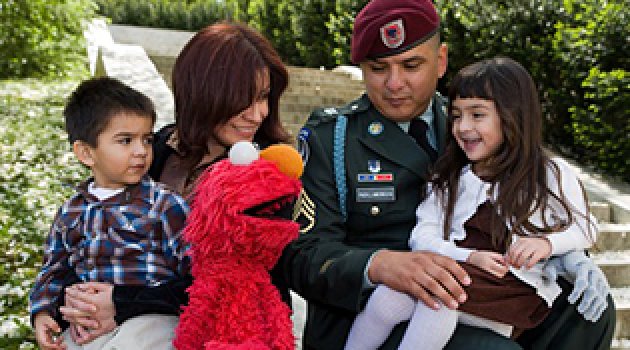
2006: Military Kids Serve, Too
In 2006, military deployments were at record levels, but existing resources often overlooked the youngest members of military families. Sesame Street reported for duty with a multimedia initiative that equipped families with child-friendly tools to tackle the unique challenges of military life. Topics include deployments and homecomings, grief and loss, military-to-civilian transitions, and how to stay healthy as a family.

2001: Coping with National Tragedy
In September 2001, Sesame Street was in the middle of production. Following the terror attacks on 9/11, we knew we had to address children’s emotional needs in the aftermath. We created a special series of Sesame Street episodes to give kids tools for coping with fear, loss, and culturally-motivated bullying—including one starring real New York City firefighters. In 2005, following the devastation of Hurricane Katrina, we aired a special episode about Big Bird dealing with the aftermath when his nest is destroyed in a storm. We also created a series of resources that families still turn to during natural disasters.
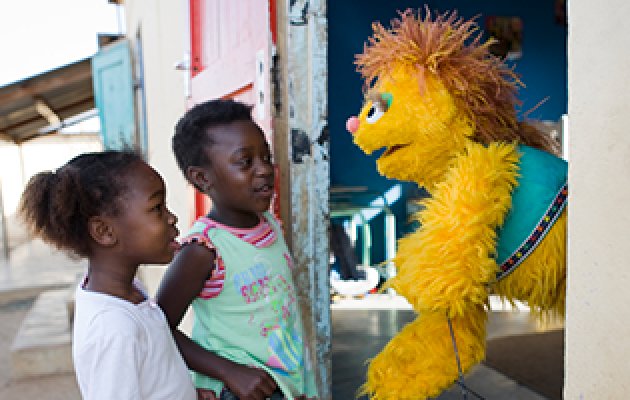
2000: Breaking a Culture of Silence
In South Africa in the late 1990s, an estimated 1 in 4 children were affected by the HIV/AIDS crisis, either orphaned by the disease or infected themselves. Working with South Africa’s Department of Education, we developed the first-ever preschool curriculum to address HIV and AIDS, and created our groundbreaking HIV+ Muppet, Kami. Today, Kami and her friends still help reduce the stigma surrounding AIDS in the region.
1990-1999
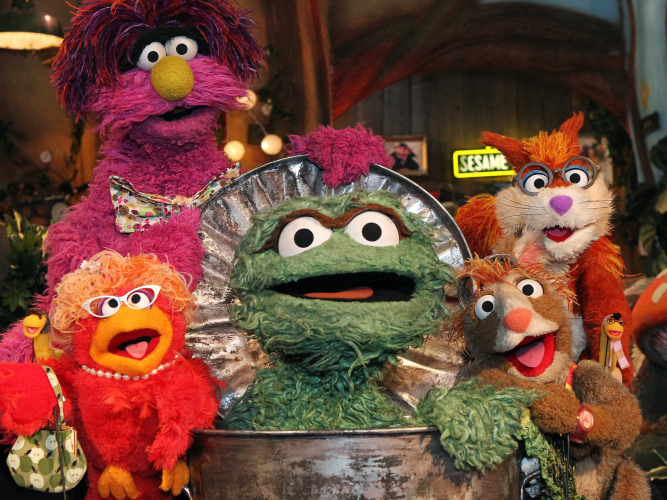
1994: Bridging Painful Divides
In the mid-1990s, a Sesame Street co-production in Israel, the West Bank, and Gaza introduced original characters who modeled cooperation and mutual respect to the youngest generation of Israelis and Palestinians, earning a letter of commendation from President Bill Clinton. Throughout the mid-2000s, Sesame Workshop produced other empathy-building co-productions in high-conflict areas, including Sesame Tree in Northern Ireland and Rruga Sesam and Ulica Sezam in Kosovo.
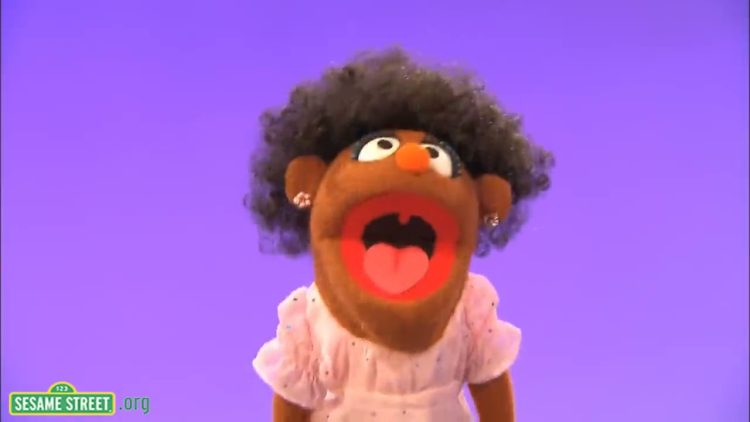
1990: Celebrating Diversity
In a now-classic segment, Whoopi Goldberg and Elmo compared and celebrated the colors and textures of their skin and fur. This tradition of celebrating diversity has continued through the years with other segments that promote connection, self-love, and learning about one another.
1980-1989
1985: Snuffy, Revealed
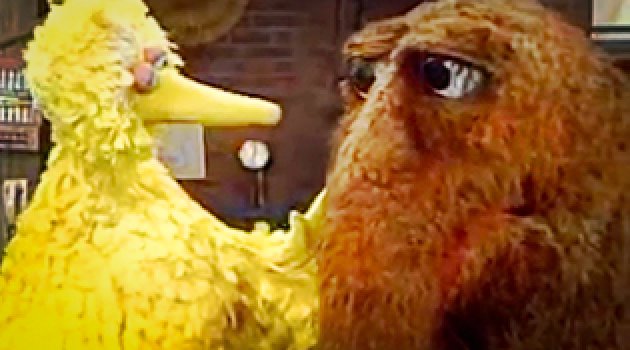
1985: Snuffy, Revealed
For many years, the adults on Sesame Street thought that the shaggy, elephant-like creature called Mr. Snuffleupagus was Big Bird’s imaginary friend. But Snuffy wasn’t imaginary. Big Bird knew he was real, but his grown-up friends didn’t believe him. That changed in 1985. In the wake of a string of high-profile child abuse cases, we wanted to show children that the caring adults in their lives would believe them. By acknowledging that Big Bird was right about Snuffy all along, Sesame Street validated children’s feelings, encouraging them to share important things with their parents and caregivers.
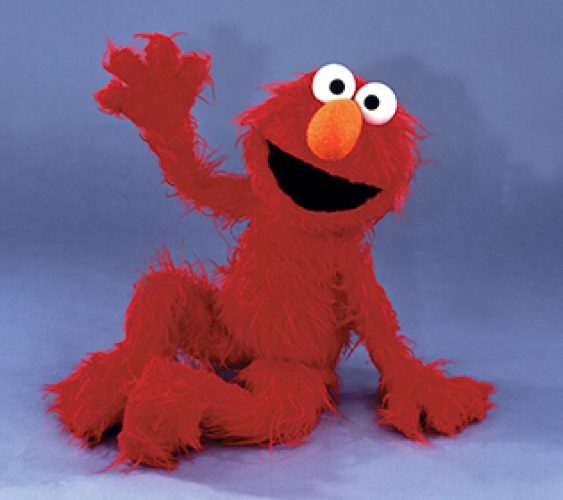
1984: Elmo Loves You
Everyone’s favorite furry red monster was once an unnamed background character. Before long, Elmo’s signature voice and cheerful attitude began to emerge. In 1984, he made his first appearance as “Elmo.” He would go on to be a Sesame superstar —one of the most recognized children’s characters in the world!
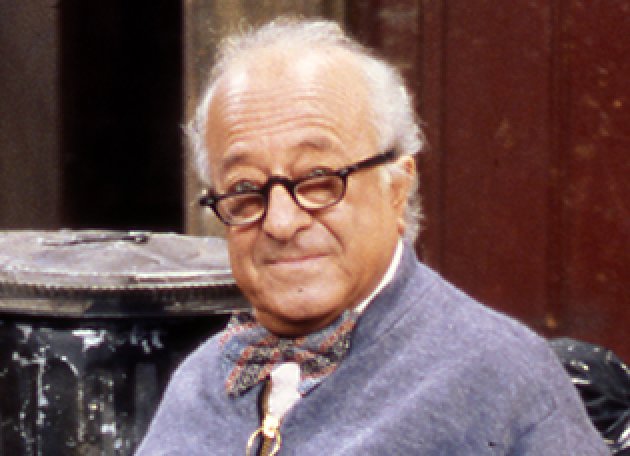
1983: Farewell Mr. Hooper
Will Lee, who portrayed beloved shopkeeper, Mr. Hooper, passed away in 1983. The decision was made not to replace the actor, or have the character “move away.” Sesame Workshop’s curricular experts and script writers carefully planned how to tell young children about death. The program won an Emmy Award and struck an emotional chord with a generation of viewers.
1970-1979
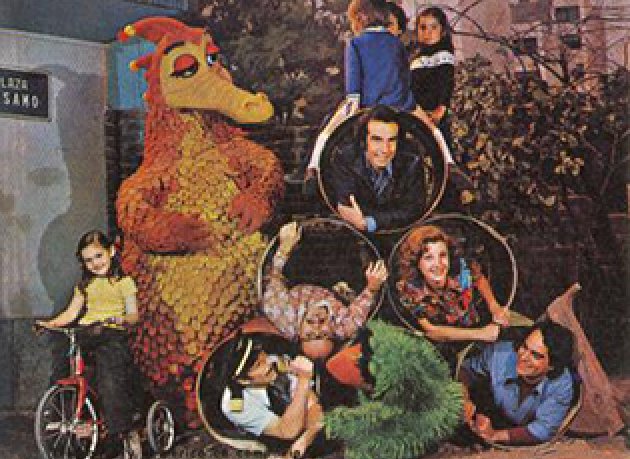
1972: The Longest Street in the World
The success of Sesame Street in the United States sparked interest from broadcasters around the world. The first international co-productions—Vila Sésamo in Brazil and Plaza Sésamo in Mexico—premiered in 1972, followed by Germany’s Sesamstrasse in 1973. Through this process, we developed a model for creating co-productions that reflected the educational priorities and cultural sensibilities of individual countries—a model that’s still in use today.
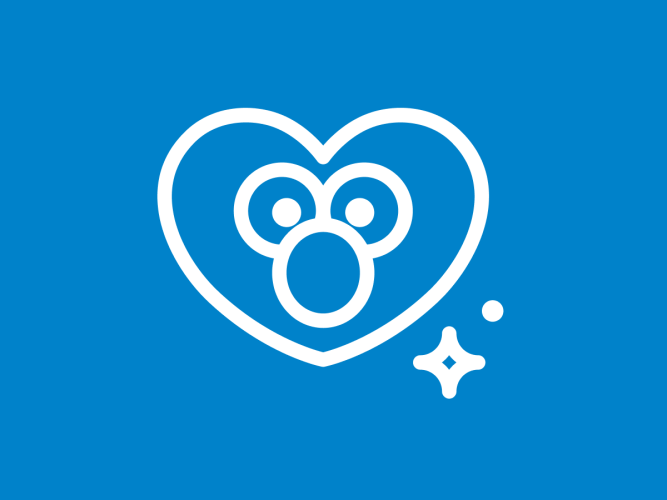
1971: Beyond Sesame Street
Once Sesame Street found its preschool audience, Sesame Workshop—then known as the Children’s Television Workshop—asked how we could serve other populations and meet other educational goals. In 1971, we launched The Electric Company to combat the literacy crisis facing children ages 7-10. Throughout the years, we created other classic animated and live-action shows like 3-2-1 Contact, DragonTales, and GhostWriter to meet kids’ changing needs.
1960-1969
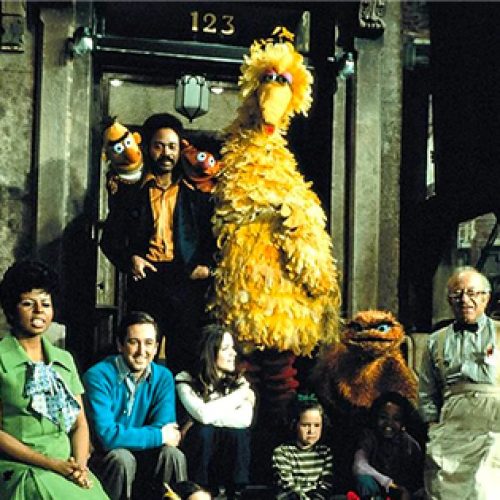
1969: Welcome to the Neighborhood
Sesame Street’s first episode opened with Gordon showing a new child around the neighborhood, telling her she’d “never seen a street like Sesame Street.” With celebrity guests, catchy songs and animations, and the beloved Muppets of Sesame Street, the show was an instant hit with children and parents alike. By the end of its first season, Sesame Street had reached millions of preschoolers.

1966: The Big Question
Against the backdrop of the Civil Rights movement and the War on Poverty, Sesame Street founders Joan Ganz Cooney and Lloyd Morrissett had a simple but revolutionary idea: television could help prepare disadvantaged children for school. They tapped educational advisors, researchers, television producers, artists, and other visionaries to create what would become the longest-running children’s show in American television history.
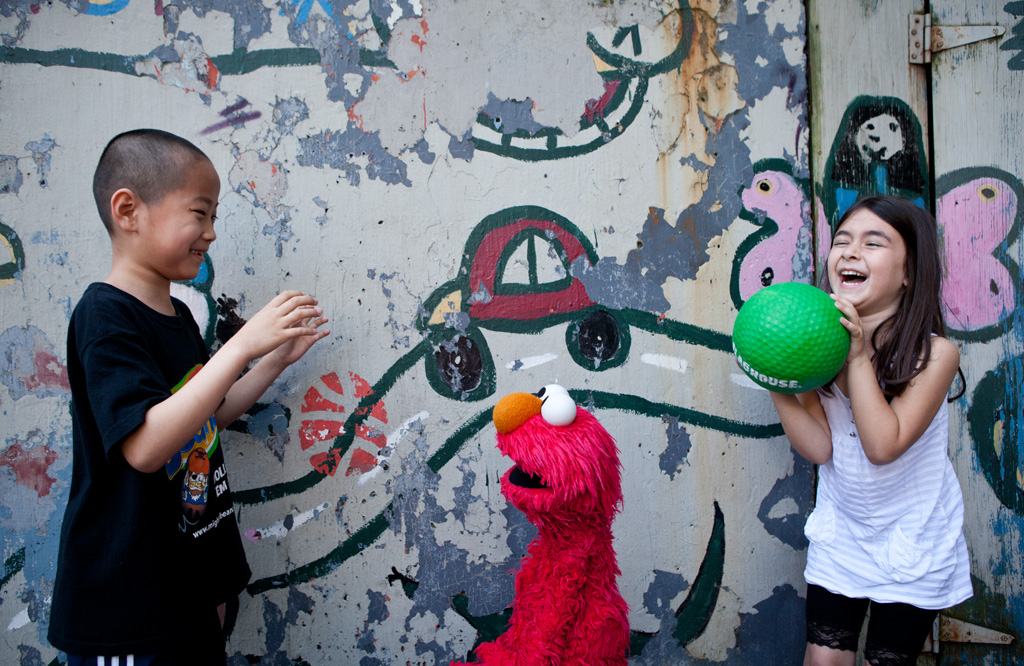
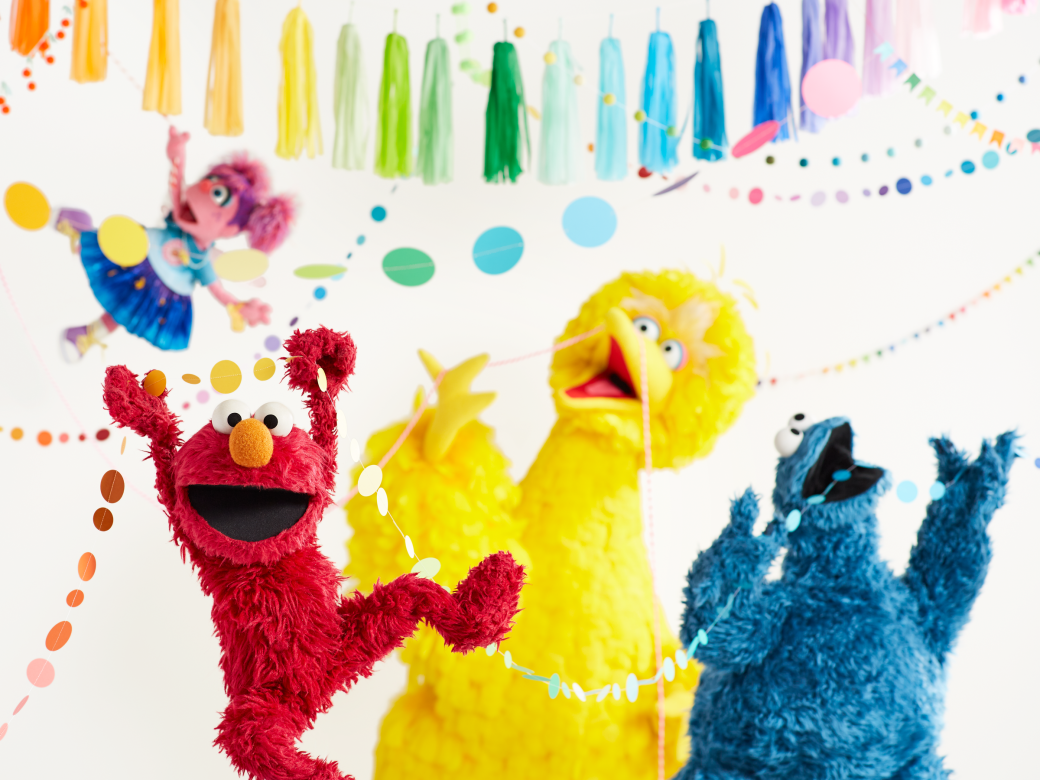
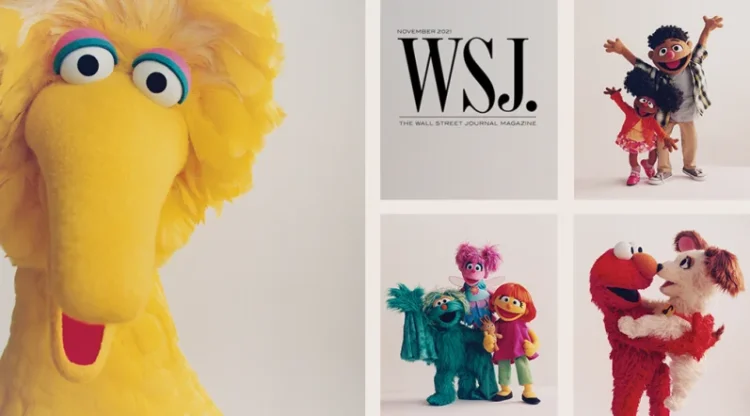
Sesame Workshop received WSJ. Magazine’s Public Service Innovator Award
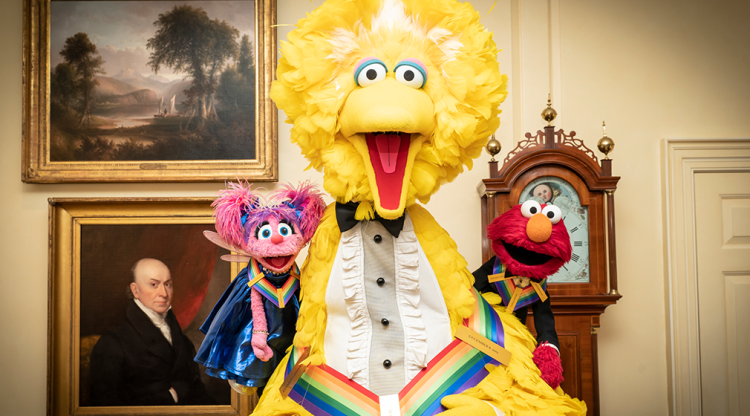
Sesame Street is the first TV show to win a Kennedy Center Honor
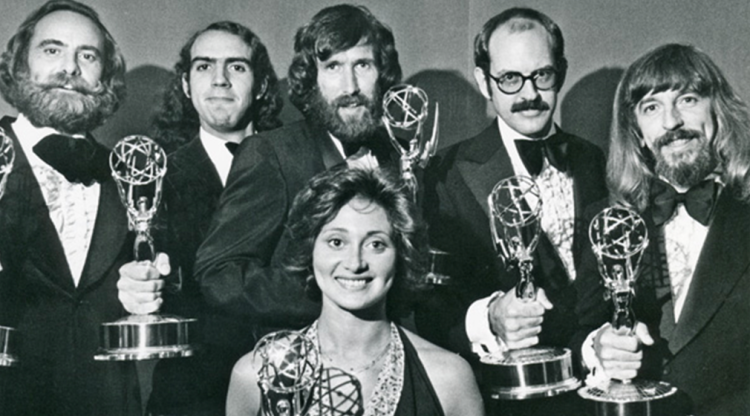
Sesame Street has won 221 Emmy Awards
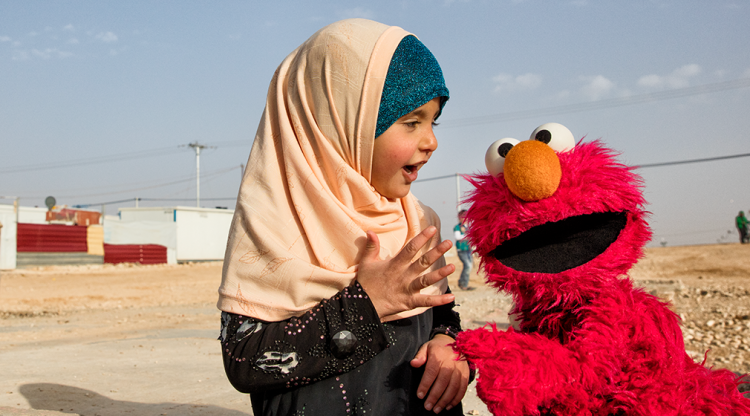
Winner of the first-ever Macarthur 100&Change Award
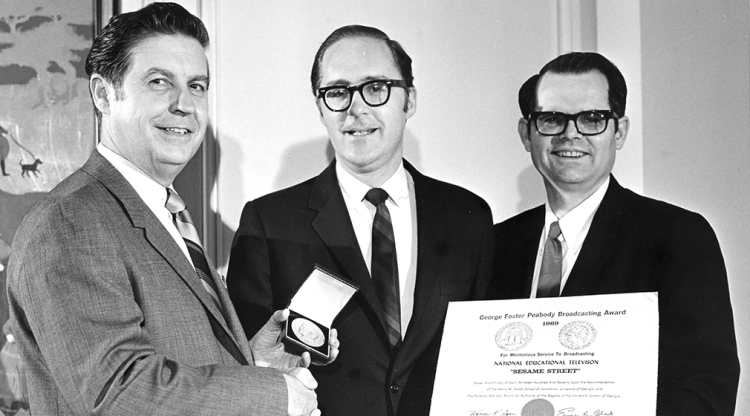
Winner of five Peabody Awards including an Institutional Award
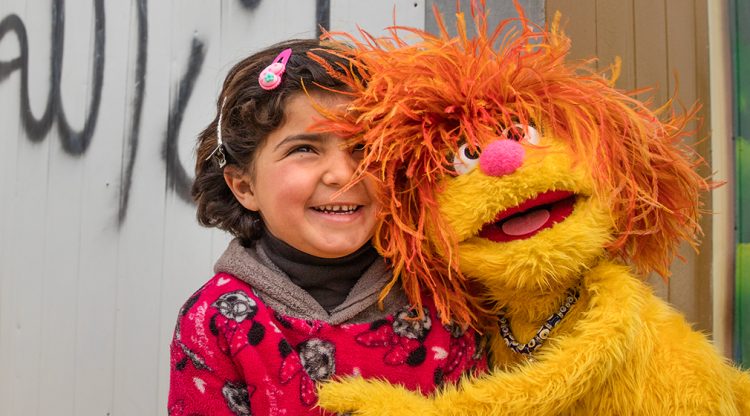
Named one of the “World’s Most Innovative Companies” by Fast Company
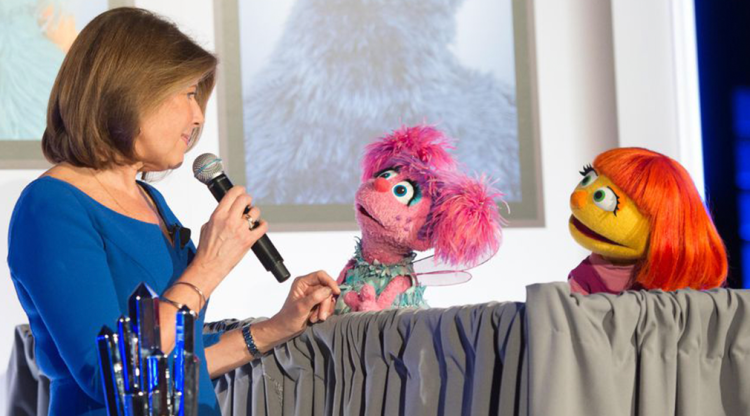
Recipient of a Smithsonian American Ingenuity Award 2017”
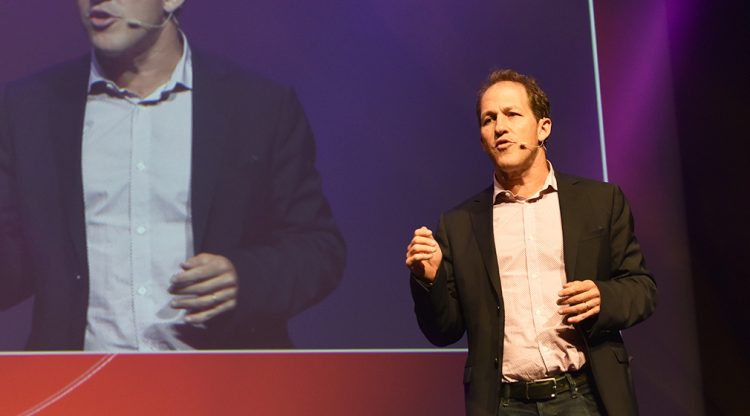
Awarded the IBC2018 International Honour for Excellence
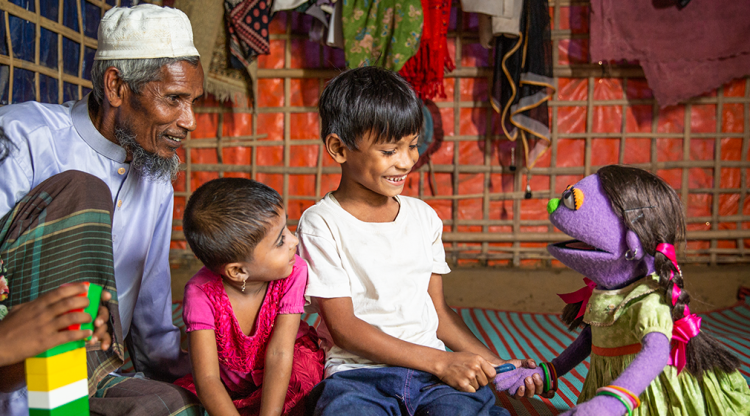
Awarded the IBC2018 International Honour for Excellence
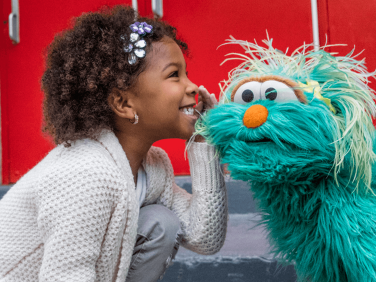
Help Prepare the Next Generation to Build a Better World
Make a gift today and help us transform how the world supports children, wherever they may be, for generations to come.
Donate Today